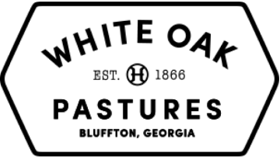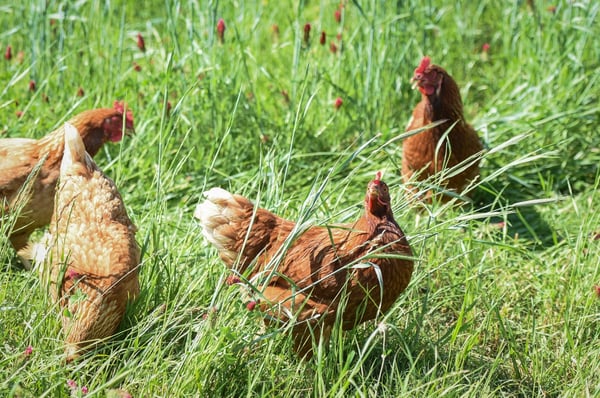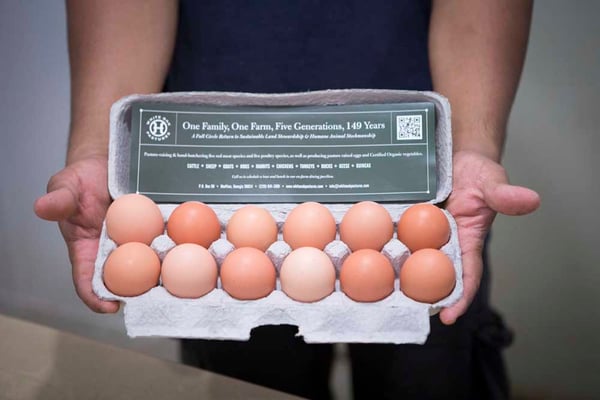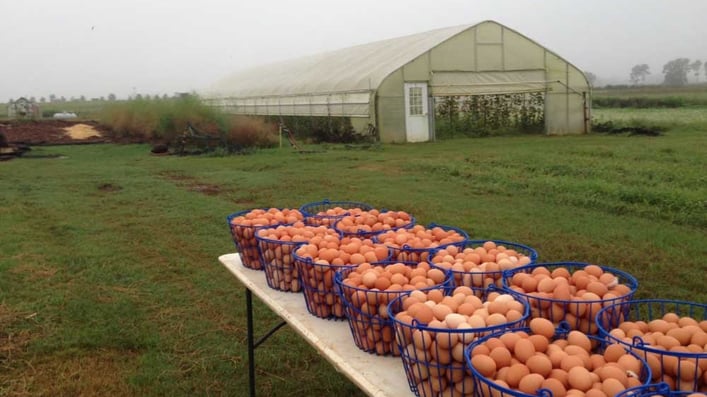
Some of you may have celebrated spring by coloring eggs this month. But as you colored the outside of the eggs, did you give any thought to the... inside of the eggs?
Egg yolks come in many different hues, and the color of the yolk depends on the diet of the laying hen. While a darker yolk isn't necessarily a better egg (it's an old farmer trick to feed chickens marigolds, or dark green veggies, to get a more orange yolk), the yolks from pastured chicken eggs usually look a little different from your average pale yellow eggs in the grocery store.
What a chicken eats can impact the quality and nutritional value of the egg - and you can see it in the yolk.
Our laying hens are pasture-raised
At White Oak Pastures, our poultry live outdoors day and night (the way chickens evolved in the first place!). We raise many different kinds of laying hen breeds, but most eggs come from either the Hy-Line Brown, a reliable layer with good feed efficiency, or the NovoGen, a small, light bird that produces an egg with a hard shell (ideal for transport to our customers).
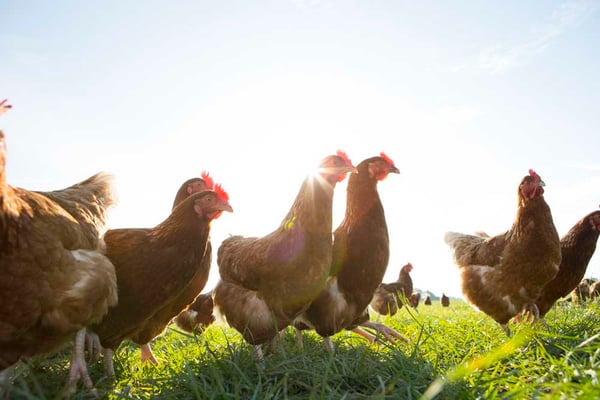
After four weeks in our brooders, eating starter feed along with grit and kelp supplements, our chicks are moved just down the road, out onto pasture. This is their new home, where they live unconfined and able to explore, peck, and eat.
Our chickens are rather active, foraging seeds, plants, bugs, and grubs to supplement the non-GMO feed that we provide. We rotate our chickens' grazing pens weekly to provide them with fresh pasture and new forage.
Animal impact of laying hens
All this activity benefits our chickens, but it also contributes to our holistic land management practices at White Oak Pastures. Our laying hens are responsible for some significant impact on the pastures.
Chickens are very thorough grazers and scratchers, and laying hens in particular have vigorous, strong feet. Their grazing and scratching disturbs the pasture, aerating the soil and allowing for better water absorption. These movements promote the ideal conditions for seed germination, making our chickens top-notch farmers in their own right.
Of course, as our chickens search across our pastures for their next grub, they also leave something behind. Chicken manure fertilizes the soil, adding organic material and nutrients like nitrogen to the pasture.
Hen diet and yolk color
Chickens like our layers are an essential part of our holistic grazing practices - and, in addition, they leave us with even more gifts, their eggs! These eggs are the product of laying hens who get a pasture-wide buffet to choose from for every meal.
They say "you are what you eat", but we'd like to add - you are what you eat, eats, too.
Collecting and packaging our eggs
From the layer fields, our two full-time egg collectors transport eggs to our egg washing and candling facility, where we package them for sale. You can buy our pastured chicken eggs on our online store, where they ship in four dozen increments.
Our eggs are unwashed, so they do not need to be refrigerated in transit. Once delivered, you can store them on your countertop or put them in the refrigerator.
Our chickens are Certified Non-GMO, Certified Humane and EOV (Ecological Outcome Verified) in the Land2Market Program.
